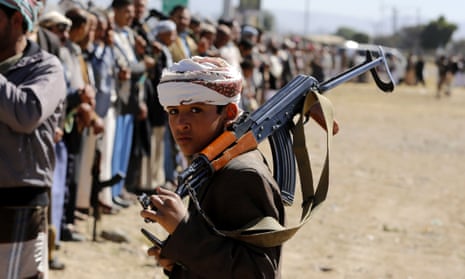Yemen’s government and Houthi rebels have agreed on the first phase of a withdrawal from the key city of Hodeidah, in a deal the UN described as important progress.
The redeployment from Hodeidah is a critical part of a ceasefire agreed in Sweden in December that calls on the government and Houthis to move forces away from ports.
The fragile truce deal marks the first step toward ending a devastating war that has pushed Yemen to the brink of famine.
After two days of talks in Hodeidah, the government and Houthis finalised a deal on the first phase of the pullback and also agreed in principle on the second phase, a UN statement said.
The talks were led by a Danish general, Michael Lollesgaard, as chair of a redeployment coordination committee (RCC) that includes the government and the Houthis.
“After lengthy but constructive discussions facilitated by the RCC chair, the parties reached an agreement on phase one of the mutual redeployment of forces,” said the UN statement.
The sides made “important progress on planning for the redeployment of forces” but no date was given to begin the demilitarisation.
“The parties also agreed, in principle, on phase two of the mutual redeployment, pending additional consultations within their respective leadership.”
The first phase provides for a pullback from the ports of Hodeidah, Saleef and Ras Issa, and from parts of Hodeidah where there are humanitarian facilities.
Under the Stockholm agreement, the pullback was supposed to have taken place two weeks after the ceasefire went into force on 18 December, but that deadline was missed.
The UN hopes that a de-escalation in Hodeidah will allow food and medical aid to reach millions in desperate need.
The Red Sea port is the entry point for the bulk of imported goods and relief aid to Yemen, which the UN has described as the world’s worst humanitarian crisis.
A new round is planned within a week to finalise details on the second phase of redeployment, the UN statement said.
The ceasefire and a Hodeidah pullback agreed in Stockholm have been hailed as a breakthrough toward ending Yemen’s nearly four-year war.
About 10,000 people have been killed in the war, according to figures from the World Health Organization, but rights groups say the death toll is much higher.
